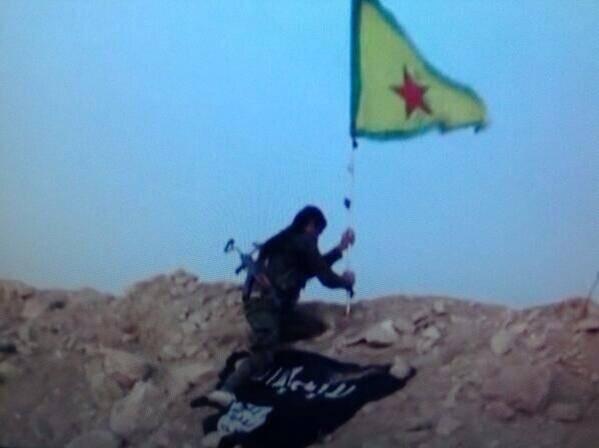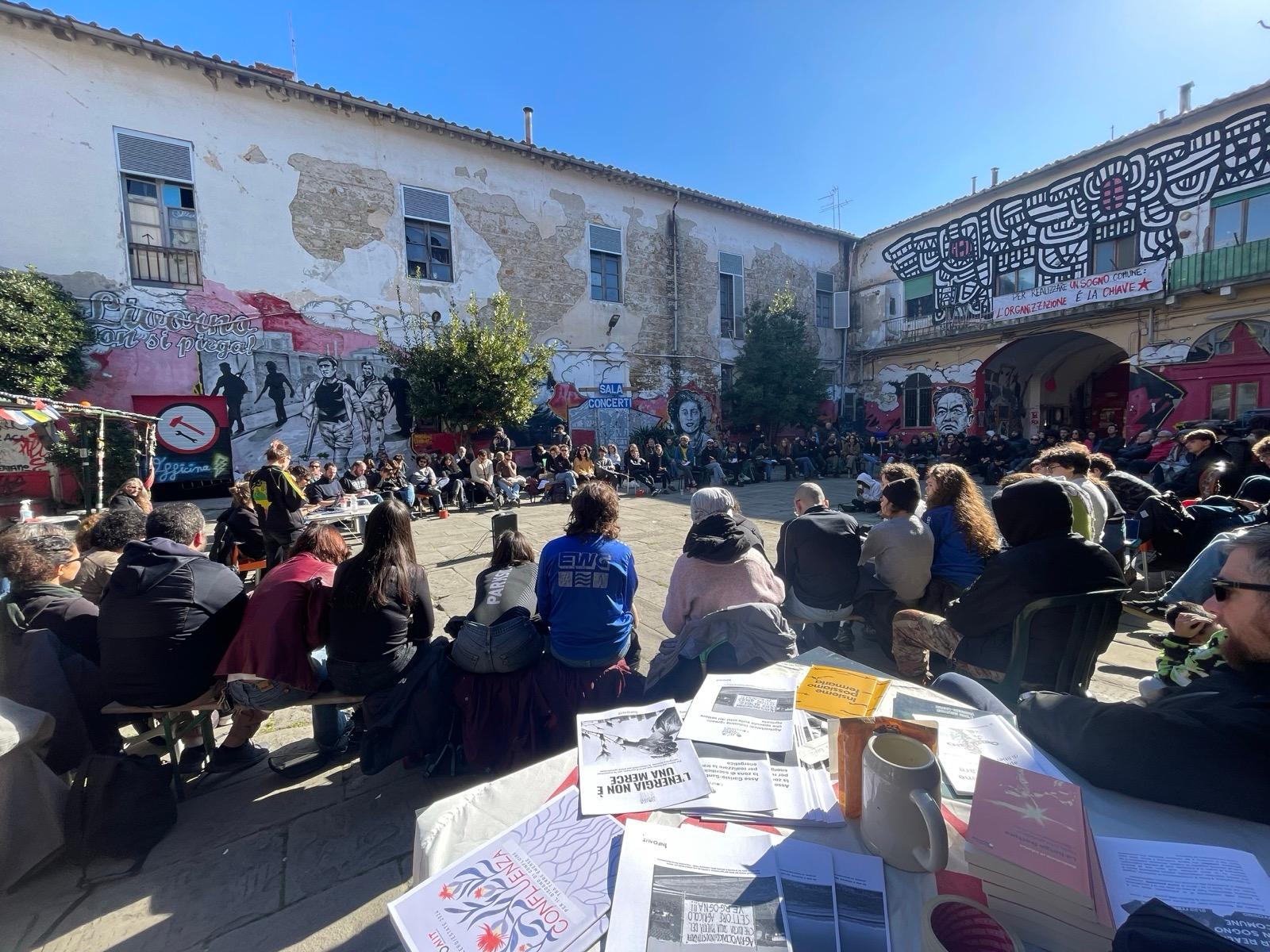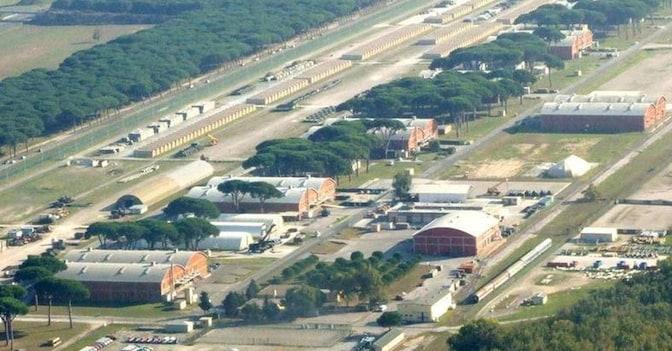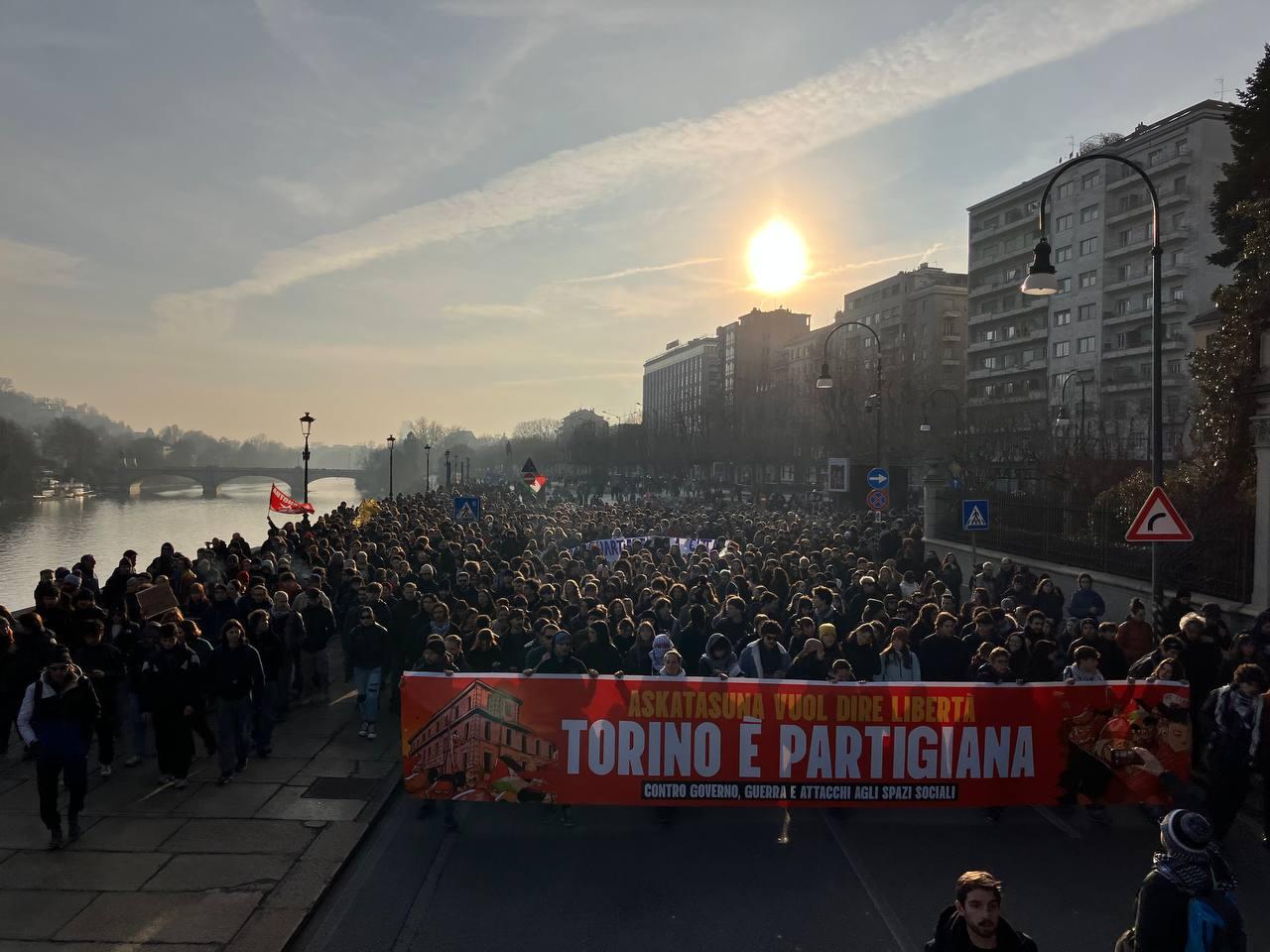
The Good Flags

There is nothing symbolic about how the Kurdish partisans lowered the black flag raised by the Isis militias on the hill at the entrance to Kobane. The action tells a story of resistance and courage, organisation and autonomy. It speaks of their power to defend their territory – meter by meter, house by house -, to retake it as the international media announces its fall, to construct and and exercise counter-power.
Many lies have been circulating in the past weeks and months about what is happening in this part of the world which is at the moment the focus of geopolitical power. These lies come more from the apparently new ‘friends’ of the Kurds than from their declared enemies. One lie depicts what is happening as a conflict between (Islamic) fascism and (Western) democracy. It would be too simplistic just to demonstrate how Isis are a product of the West, financially and by short-sighted geopolitical calculation. It is not only this. ‘Islamic State’ is a reaction to and a copy of everything the West has been for centuries. The media circus in search of sensational stories about those who go from various countries to fight with the ‘Caliphate’ is careful not to tell the everyday stories of ordinary oppression and poverty suffered by immigrants and increasingly larger sections of the population experience. Those who watch decapitations with horror must have forgotten the horror of Abu Ghraib and Guantanamo. The bodies under those orange clothes have, as always, a different value on the basis of class, birthplace and skin colour. Isis, then, who want to remove one flag of oppression and replace it with another, is as much product of democracy as their antagonists. Mr President or Caliphate, the problem is the system of exploitation that both represent.
Another lie is about the help supposedly being given to the Kurdish resistance. The Kurds have been historically utilised and sacrificed by the so-called international community, according to changing geopolitical interests. If anything, it is the organisations that oppose the PKK – back bone of popular self-defence and revolution in Rojava – which are being funded today. They would have us believe that only intervention from the imperial power of Nato can contain and defeat Isis. This is untrue, in fact the opposite it true: it is such intervention which feeds Islamic State. The Kurds resist today thanks not only to contemporary indignation but to the strength they have built during a history of struggle and organisation, hardened over decades. The autonomy hoped for in Rojava is the result of this long history and its conflicts. Whether the supporters of the struggle of others – the further alway the better – like it or not, the Kurds who today resist in Kobane don’t struggle for a democratic State but for the radical and anti-capitalist transformation of social relations. After all, who knows what those who fight for the streets of Kobane think to the Europe so dear to the left. What do they think of the Union that made the wars which crushed the Kurds, that supported Turkish repression of the PKK, that delivered Ocalan to his captors? The left like the victims and the defeated; we however prefer the strength of struggle and the lessons that it can give us.
The first lesson is that it is not democratic sentiment and calls for peace that end war. To crush Isis we have to battle simultaneously against its mirror image: the power of the West. The alternative is not between fascism and democracy but between oppression and revolution. For peace we need to be ready to fight with weapons.
The second lesson is about the level of hatred for the bosses of the world which, in the crisis, further increases. But there is no relation of determination between increasing poverty and the increasing possibility of struggle. The outcome is in fact often the opposite: increasing levels of acceptance or hatred which takes to the streets on the other side. It may lead some to the side of the resistance to crisis Kobane and others to wave the mystificatory black flags of Isis, of the bosses. But those who do not exist within this hatred and risk, in order to create inside it new possibilities of conflict and rupture, new forms of organisation and direction, only isolate themselves in ideological elitism and deliver everything into the hands of the reaction. On the other hand, there are those who support the resistance because they are thought to be the victims and losers. To all these left positions, we prefer the desert of the real.
Last but not least, the Kurdish resistance tells us that there can only be a new internationalism through communication and bringing together different struggles. Doing like Kobane then doesn’t mean only expressing an abstract solidarity but struggling and organising here, now, against the bosses of the crisis and the war.
Ti è piaciuto questo articolo? Infoaut è un network indipendente che si basa sul lavoro volontario e militante di molte persone. Puoi darci una mano diffondendo i nostri articoli, approfondimenti e reportage ad un pubblico il più vasto possibile e supportarci iscrivendoti al nostro canale telegram, o seguendo le nostre pagine social di facebook, instagram e youtube.




















